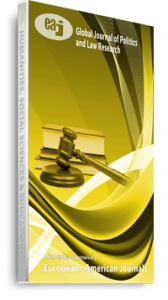Kecamatan Pasir Limau Kapas [Palika], Rokan Hilir District, Riau Province, Indonesia, is a lagging, isolated and outlying area. This position causes welfare to be an important issue discussed. Key issues related to welfare are, for example, minimal and slow development of infrastructure, ambiguous development policies, abuses of territorial violations and fishing gear, and the issue of border security and defense. Based on important issues, this study aims, first, to explain the main potential of Palika as a strategic border region located on the coast of the Malaka Strait. Second, explaining the role of local government to develop Palika as a strategic border region located on the coast of the Malaka Straits. This study uses regional development [main potential and local government role] as a theoretical framework. The approach used is qualitative with descriptive analysis method. Data were collected based on documents supported by interviews. Once collected the data are analyzed qualitatively. This study concludes that, firstly, Palika’s main potentials such as the geographic position relating to the strategic region and the resulting regulation are considered not to support the defense and security issues facing the country as a strategic border region located on the coast of the Malaka Strait. Second, the role of local government in developing border region is considered ambiguous: the border management agency is abolished, while in order to build the potential of natural tourist areas, the local government appeals for central government budgets. Practically this study shows that budget dependence has negative implications for the development of strategic border region.
Keywords: Border Development, Palika, Strategic Region, Welfare and Riau

